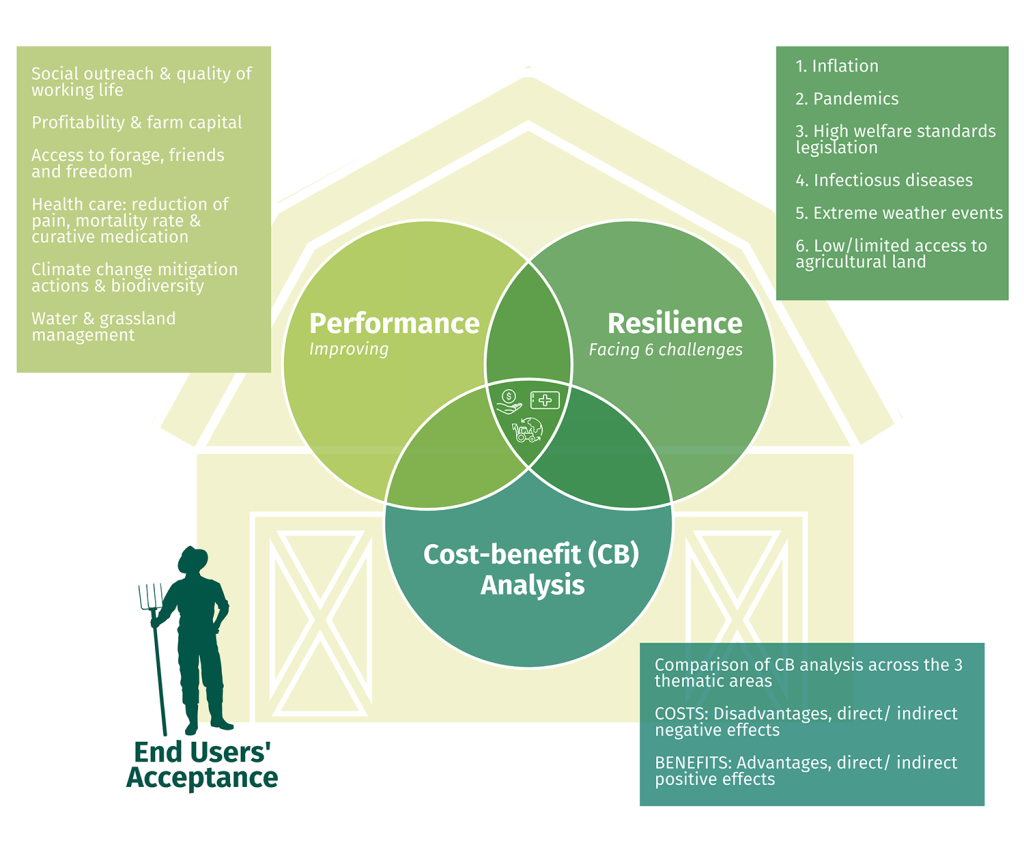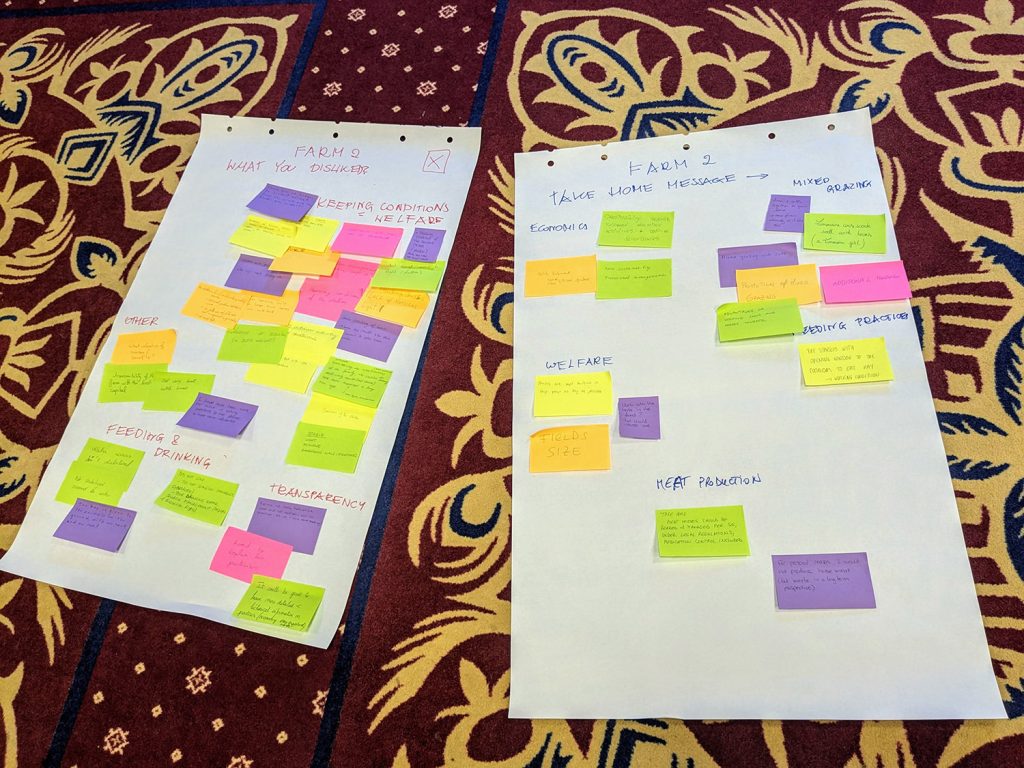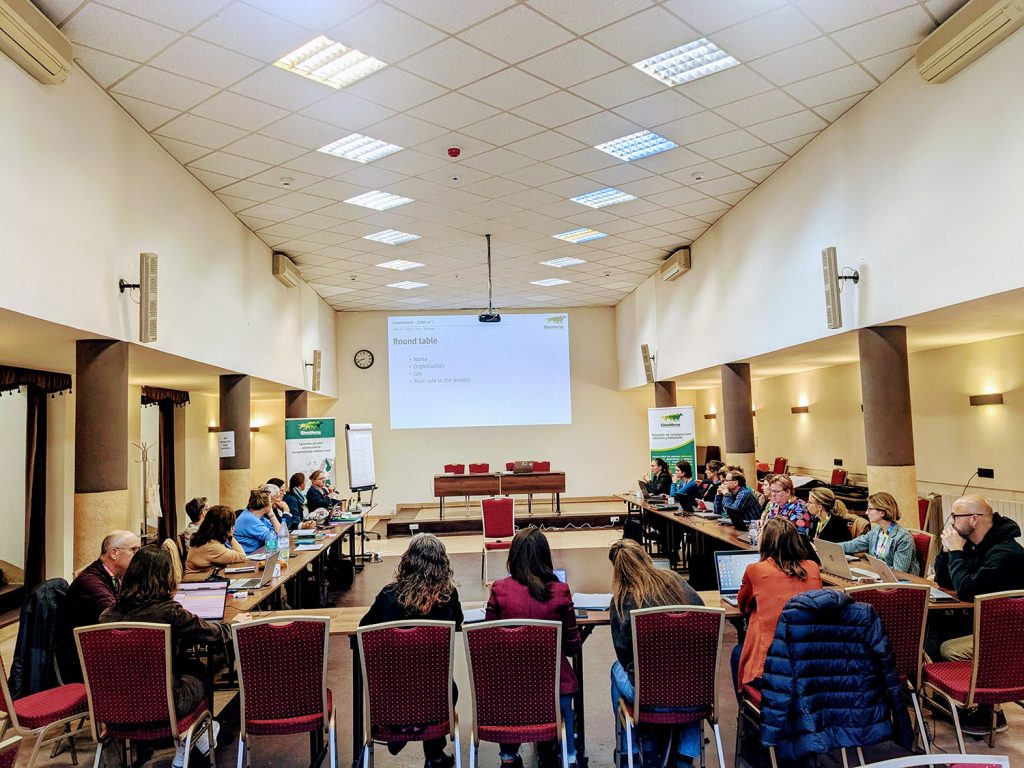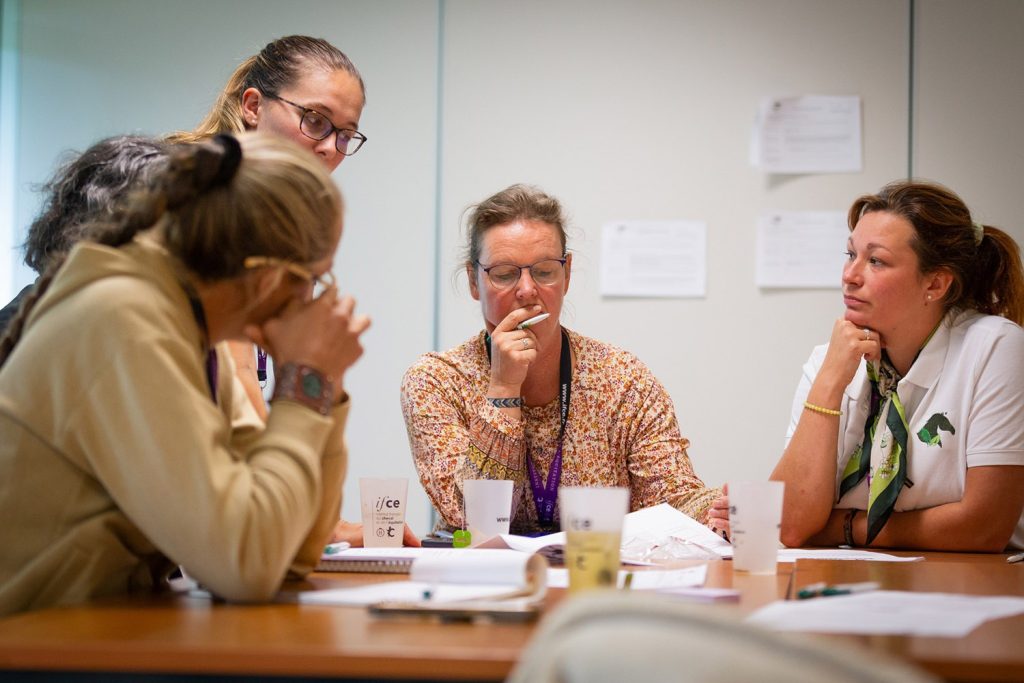Evaluation of solutions
In this phase, solutions are being evaluated using a structured methodology that considers their effect on the performance and resilience on equine farms, and the cost-benefit analysis. As part of this process, a multi-criteria grid was developed to assess solutions across all thematic areas of the EUnetHorse project.
To adequately structure the work to be done, potential solutions and good practices were prioritized, evaluated first at national level during the national workshops (NWS) and then at European level during the European workshops (EUWS). At least 2 priority areas are covered in each EUWS.
Solutions evaluated in Poland (3EUWS) were related to:
- How can working conditions be improved?
- How can biodiversity be improved while maintaining equine activities?
Solutions evaluated in Portugal (4EUWS) will be related to:
- How can resource management and farming practices be adapted to address climate change?
- What practices can beimplemented to promote biosecurity measures and prevent emerging diseases?
With this process, at the end of the evaluation phase, each solution will have:
- A score to comprehend how the solution can help a farm to improve its level of performance within each thematic area (socio-economic performance, animal welfare and health on farms, and environmental sustainability of the equine sector).
- A score to understand how the solution can help a farm to be more resilient and able to cope with challenges within each thematic area.
- A cost-benefit analysis of the solution.
From each solution, a technical sheet with the description, evaluation and images will be published. See the solutions tree.





